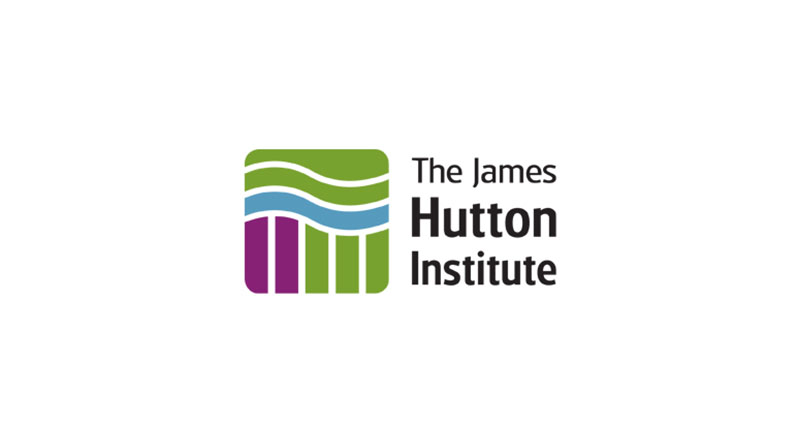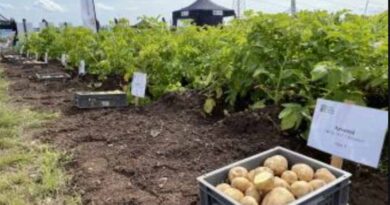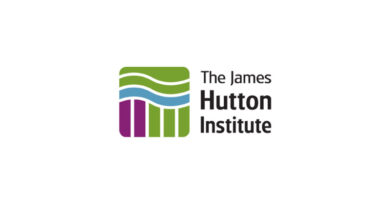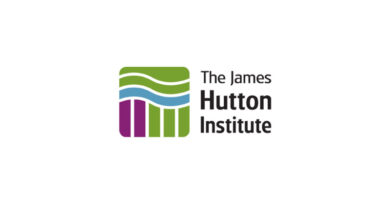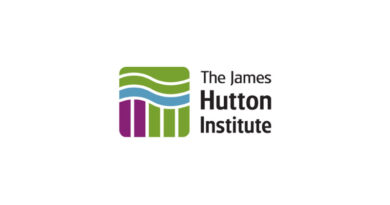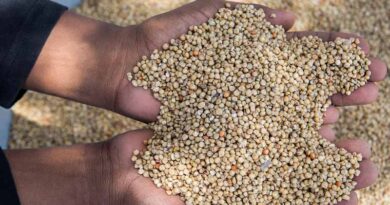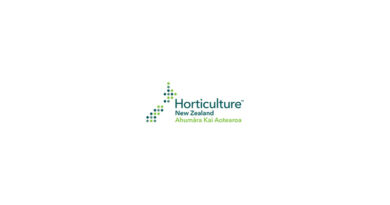Key appointments made by James Hutton in potato and barley fields
21 May 2023, UK: Two top scientists have been appointed to head up flagship initiatives being carried out at The James Hutton Institute – the globally recognised Scottish research institute that focusses on the sustainable use of land, crops, and natural resources.
Professor Ian Toth has been appointed the first Director of its ground-breaking National Potato Innovation Centre (NPIC), being planned to accelerate potato breeding and discovery, resilient production systems and innovative products and create high skilled jobs in new industries.
Dr. Tim George has been named Deputy Director of the International Barley Hub, which aims to bolster barley growing worldwide by researching new varieties and techniques to increase yield, resilience, and the climate-change credentials of Scotland’s biggest grain crop.
The appointments come just a week after Susan Davies, Chief Executive of the Scottish Seabird Centre since 2019 and a former Director of Conservation at the Scottish Wildlife Trust, took over the Chair at James Hutton.
A plant pathologist specialising in potato diseases, Professor Tothis currently Director of Scotland’s Plant Health Centre – the multi-organisation virtual operation led by the Hutton and funded by the Scottish Government, to help tackle plant health in the country.
In 2020 he received the ‘British Potato Industry Award’ for lifetime contribution to the industry and will become President of the European Association for Potato Research (EAPR) in 2024.
The new Director said the NPIC’s detailed operational plans are now firmly in place with funding being established, positioning it to become one of the world’s leading potato research facilities.
He said its wide-ranging research efforts will centre, for instance, on improved potato pest and disease control and making the global industry more climate and environment friendly with less waste, adding that forging international collaborations will form a key pillar of the facility’s work.
Professor Ian Toth said: “There is nothing humble about the potato – in fact, it’s the world’s third most important staple food crop and the single most important crop in terms of food produced per unit area. Hutton is already the custodian of the Commonwealth Potato Collection – a unique source of potato germplasm from wild relatives and land races.”
“However, yield gains in potatoes have failed to keep pace with those achieved in other crops, largely down to their complex genetics. We will be tackling what’s now an urgent need – to lead global research into this most-vital of crops, using both natural science and social science working together.”
Barley, meanwhile, is the UK’s second largest crop, and is grown on about half of Scotland’s arable land. It supports 40,000 jobs in Britain, largely down to its pivotal role as a food, feed and main ingredient in Scotch whisky and beer.
The International Barley Hub (IBH), together with the Advanced Plant Growth Centre, is part of the Tay Cities Regional Deal partnership supported by £45m from the UK Government and £17m from the Scottish Government. It aims to bolster barley growing by researching new varieties and techniques to increase yield, and its resilience to climate-change.
New IBH Deputy Director Dr. Tim George is a plant physiologist and soil scientist who has worked on the dynamics of nutrients in the rhizosphere – the zone of chemical, biological, and physical influence generated by root growth – for a quarter of a century.
He has an especially notable track record in leading teams of scientists in projects funded by the European Union and UK Research and Innovation and is a board member of the European Plant Sciences Organisation.
Dr. Tim George said: “Barley is one of Scotland’s most important crops and as a fundamental component of many key industries is pivotal to brewing and distilling; yet it remains largely under the radar in terms of the perception of its significance.
“Few people outside the farming industry appreciate barley’s link to the economic well-being of this country, as well as its significance globally as a nutritious food crop
“We are already at the forefront of scientific progress where barley is concerned, but our new hub project has been developed in partnership with industry and other key sector stakeholders, to ensure Hutton’s barley activities are targeted where they are most needed and to deliver maximum economic and environmental impact.”
Professor Colin Campbell, Chief Executive of The James Hutton Institute said: “Both of these appointments are crucial to two of the renowned Invergowrie research hub’s flagship areas of research.
“Food security is a headline global issue. The Hutton is squarely focused on rethinking everyone’s – not just Scotland’s – relationship with food, how it’s produced and how it affects nature, how to grow and manufacture a more diverse range of quality food locally
“Our work is multi-facetted, from reducing the need for imports, to how produce could be provided by simpler supply chains less prone to shocks, to how we rebuild our natural capital after centuries of over-consumption.
“Our scientists are discovering better ways of feeding ourselves without further damaging our environment, finding new climate-positive food and drink products, and piloting revolutionary technologies for crop management to leave less of a footprint on the land.”
(For Latest Agriculture News & Updates, follow Krishak Jagat on Google News)

